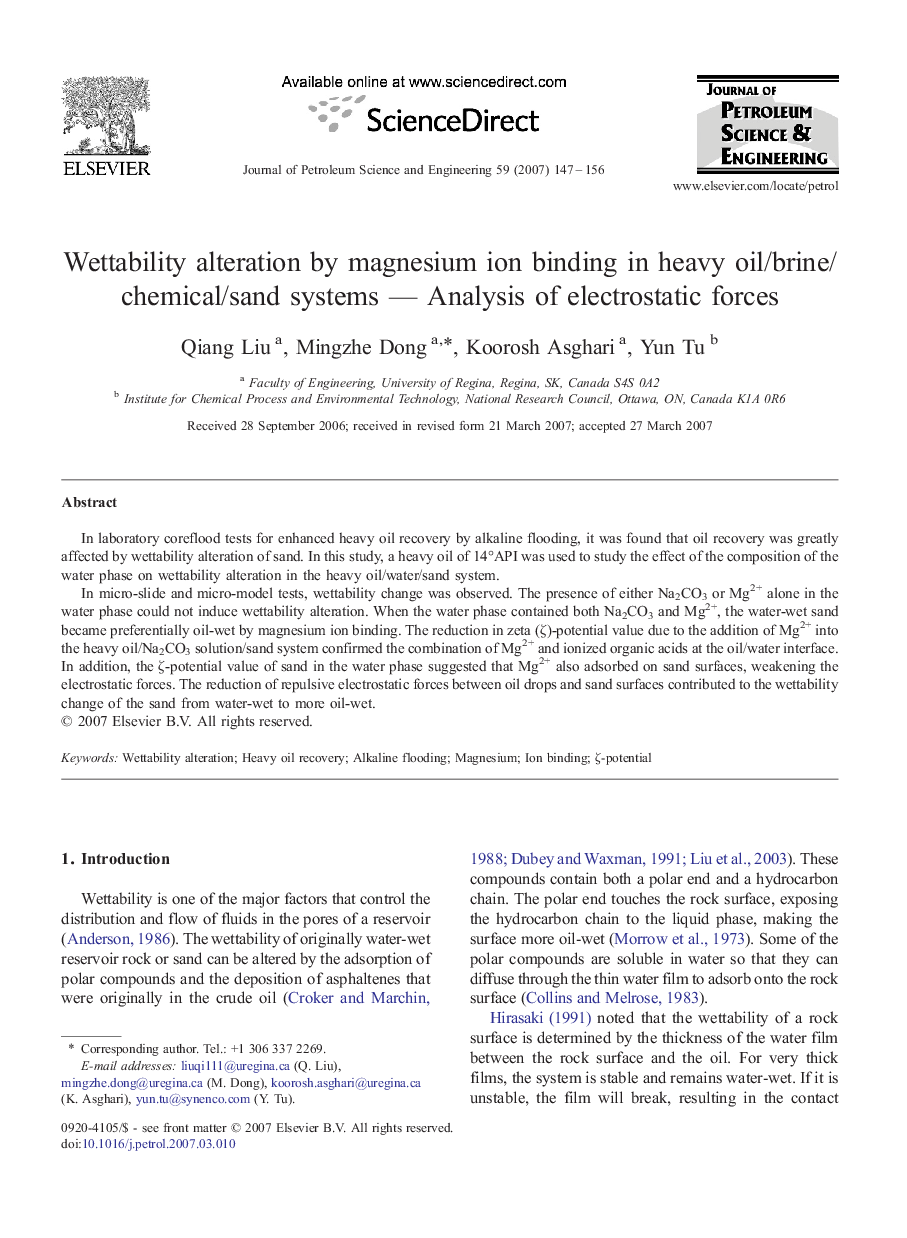| Article ID | Journal | Published Year | Pages | File Type |
|---|---|---|---|---|
| 1756287 | Journal of Petroleum Science and Engineering | 2007 | 10 Pages |
In laboratory coreflood tests for enhanced heavy oil recovery by alkaline flooding, it was found that oil recovery was greatly affected by wettability alteration of sand. In this study, a heavy oil of 14°API was used to study the effect of the composition of the water phase on wettability alteration in the heavy oil/water/sand system.In micro-slide and micro-model tests, wettability change was observed. The presence of either Na2CO3 or Mg2+ alone in the water phase could not induce wettability alteration. When the water phase contained both Na2CO3 and Mg2+, the water-wet sand became preferentially oil-wet by magnesium ion binding. The reduction in zeta (ζ)-potential value due to the addition of Mg2+ into the heavy oil/Na2CO3 solution/sand system confirmed the combination of Mg2+ and ionized organic acids at the oil/water interface. In addition, the ζ-potential value of sand in the water phase suggested that Mg2+ also adsorbed on sand surfaces, weakening the electrostatic forces. The reduction of repulsive electrostatic forces between oil drops and sand surfaces contributed to the wettability change of the sand from water-wet to more oil-wet.
